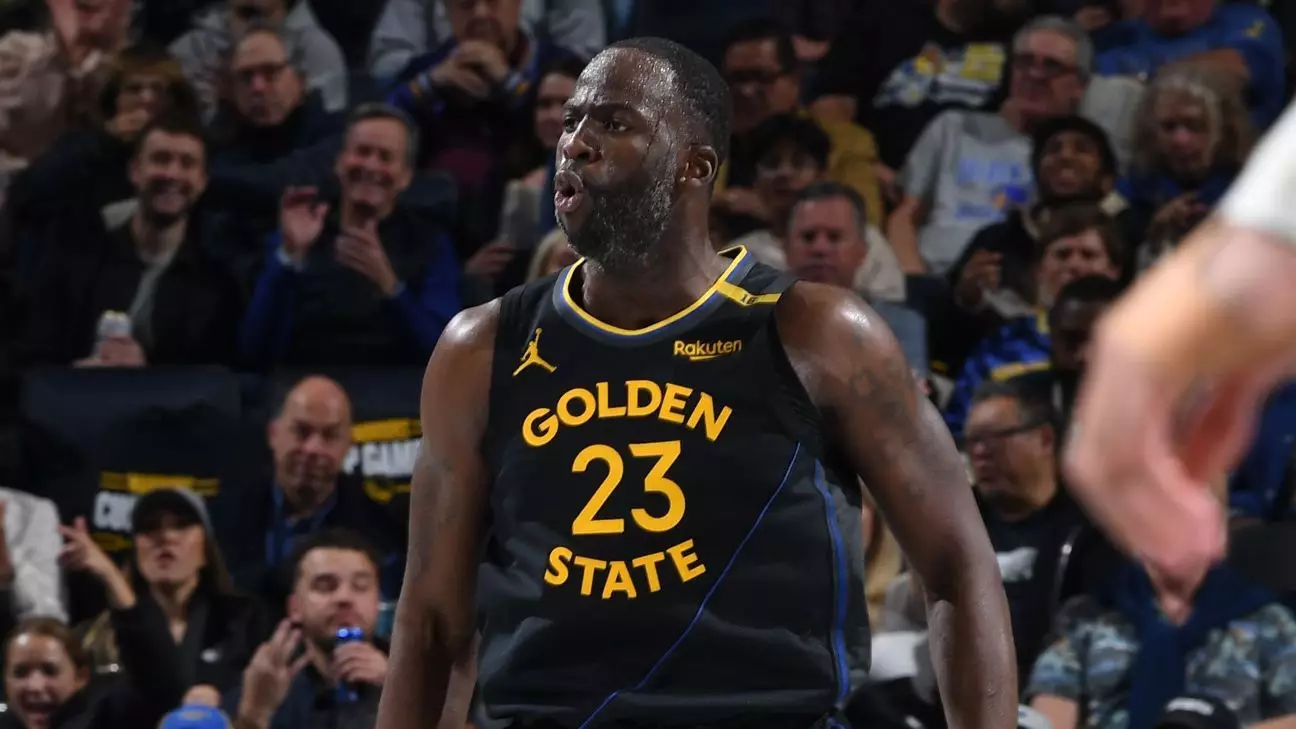In the world of professional sports, conflicts and reconciliations are part and parcel of the journey. Recently, Draymond Green, a key player for the Golden State Warriors, found himself revisiting a past incident when he issued an apology for an altercation with former teammate Jordan Poole. This incident, which occurred over two years ago, sent shockwaves through the Warriors’ locker room and shaped narratives surrounding team dynamics. Now, as Poole returned to the Warriors’ home arena in his new role with the Washington Wizards, Green felt it was an opportune moment to express remorse and advocate for moving forward.
Green’s apology comes on the heels of Poole’s heartwarming comments regarding his time with the Warriors, where he expressed love for “most of those guys.” Green’s response was a mix of acknowledgment and frustration as he expressed his desire to bury the hatchet. His tweet echoed his sentiments: “I really am sorry.” However, Green also suggested that Poole’s remarks appeared to seek sympathy or provoke lingering resentment. This ambivalence encapsulates the complexity of human emotions in professional athletics, where personal relationships often intersect with business dealings.
The infamous incident dates back to October 2022, during a Warriors preseason practice. Footage of Green and Poole’s heated exchange surfaced, revealing a physical confrontation that culminated in Green punching Poole. The closure that many hoped for didn’t come immediately; Green issued a public apology and faced internal consequences, including a fine and a voluntary leave from the team. However, he managed to continue playing without facing league sanctions, highlighting a lack of external discipline despite the gravity of the situation.
Recalling the incident, Green openly accepted that he was in the wrong but maintained that provocation was a factor in the escalation. His analysis of the situation—that both players contributed to the altercation, albeit from different perspectives—presents a nuanced view, albeit one that some may argue trivializes the severity of his actions. His reflections served as a reminder that emotions can override rational judgment, especially in high-pressure environments like the NBA.
In light of his past behavior, Green demonstrated a commitment to personal growth. He has acknowledged that his actions in response to stressful situations have warranted reflection and change. In the wake of the Poole incident, combined with subsequent altercations last season that led to suspensions, Green sought professional help, including counseling and therapy. He emphasized that the support from therapists and the accountability measures mandated by the league made a significant difference in his approach to the game and his mental wellbeing.
Green’s objective isn’t merely to apologize; he openly wishes to foster a narrative of redemption and perseverance. His commitment is evident in his drive to improve not just as a player but as a person navigating the intricate landscape of professional sports. Through these experiences, he aims to reshape how his career is perceived—transitioning from instances of discord to examples of learning and growth.
As the Warriors move forward in a new season, the team’s dynamics continue to evolve alongside Green’s personal journey. His candid admissions about his behavior this season, including instances of receiving technical fouls yet showing restraint compared to previous years, illustrate his desire to change. The stakes remain high as he wrestles with the balance of maintaining his competitive edge while protecting the camaraderie that is essential for team success.
As Green recovers from an injury that has kept him sidelined, he reflects on his time both on and off the court. His tweets and podcasts reveal a man who grapples with his past while aspiring for a future defined not by mistakes but by accountability and growth. This journey serves as a poignant reminder of the complexities athletes face, and as fans, we must recognize that behind the jerseys and accolades lie individuals learning, falling, and ultimately rising again.
In essence, Green’s narrative is one of transformation, and as he seeks to reconcile with his past, the hope is that not only he but his teammates and the fans can also find healing in moving forward together.


Leave a Reply